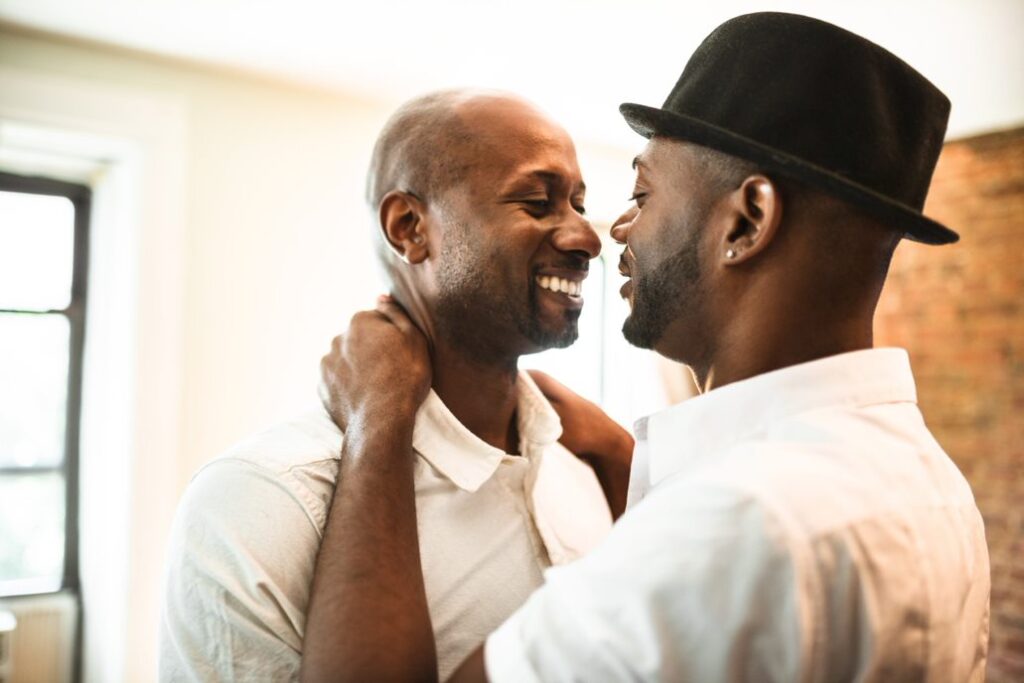This post was written by our BME MSM Sexual Health Outreach Worker, Peter Rowe.
I am a 50 year-old black gay male. I came across the gay scene in Birmingham by accident. At the age of 16, I came to live in the Highgate area of Birmingham. On walking into town, I kept seeing men with moustaches, Levi jeans, and Doc Martens. It soon became apparent that these men were ‘clones’ and that the Hurst Street area was known as the Birmingham gay scene. Although I had an aunt who was lesbian and a gay cousin, everyone’s journey is unique. From a very young age, I identified that I was gay, but did not go to a gay venue until I was 23. I met someone in Tesco. We got talking and he felt comfortable telling me he was gay. Back then there were no dating apps, sites, or mobile phones, so any contact was made through the Lonely Hearts column or in person.
After meeting up with the person from Tesco, who I shall call Karl, I discovered that I was not the only black gay male in Birmingham, and that he knew several others from Birmingham and Chelmsley Wood. These guys came from a range of backgrounds, some married, some in the church, some in gay relationships. Those in gay relationships had moved to other areas in Birmingham for anonymity, or where they could say they were cousins. Lots of people say that black gay males are funny. This is because they are fearful of being outed.
Someone once asked me, when did I come out? My reply was I have never come out, I have always done what I felt was comfortable, but I do understand that this is not the case for everyone. During the late 80s and early 90s, I saw and knew of black gay males that committed suicide by jumping from tower blocks in the Lee Bank and Queensway areas. Some saw this as easier than coming out. Others did this because they had been disowned by their families for their sexuality.
The first gay venue I attended was Subway City. I went there 2 weeks after it opened. I used to go at least 3 times a week, and the friends I made there became my family. Although a gay-owned club, there were straight people there too. Every week, I would see straight people who would ask why I was there. My answer was always: the same as you, I’ve come out to enjoy myself, which was not a lie but giving nothing away either. During my time attending this club, I met guys from the West Indian Community and it became a meeting point where we could meet up with other like-minded people – married men, religious men. I would ask them how they managed to get away. Some would say a work night out, others would sneak out while partners slept.
These experiences help me to understand the issues faced by gay guys from the African/Caribbean communities. I am glad that the knowledge of my role as a sexual health worker, along with my life experiences, enable me to support these people in testing them, talking to them and signposting them to other relevant agencies. It is still thought by some that HIV is a gay disease. Through my role I can dispel misconceptions like this.
Today it is much easier to connect, using mobile apps, websites, etc. It can be done from home, creating online friendships. It is easier than it was when I was starting out, but there is still prejudice and there is still some way to go before we see an open and equal community.


